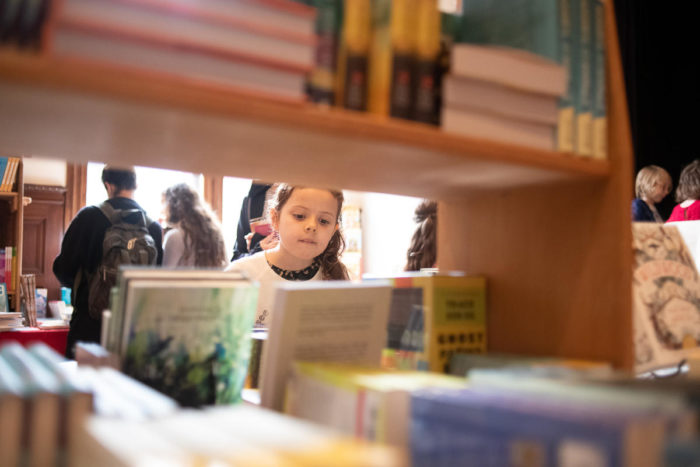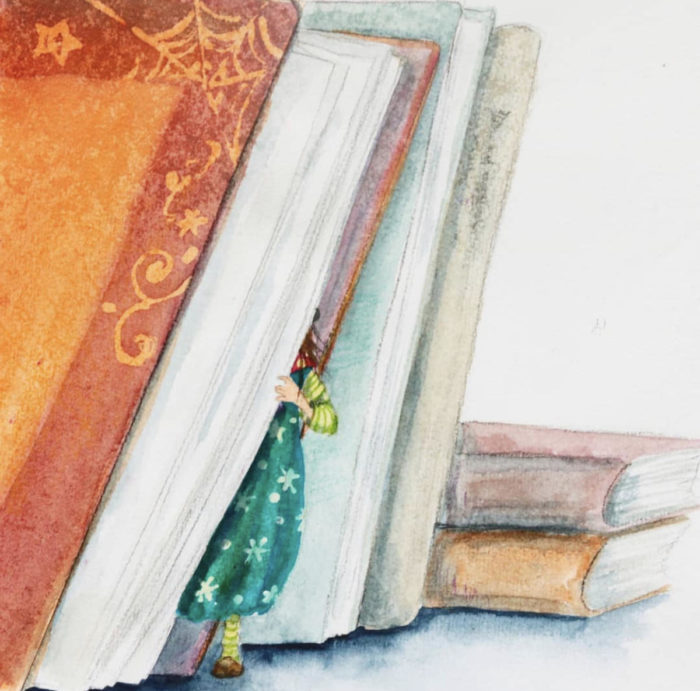Building Community While at Home #9 – The Joy of Reading
"Reading should not be presented to children as a chore, a duty. It should be offered as a gift."
— Kate DiCamillo
The Joy of Reading
By Amba Singh, Director of Educational Support
I have always loved to read. The companionship of a book, growing with the characters, sharing tears, and laughing through a book, is a journey that takes us places, both within and outside of our realm of experience. This short essay is my reading journey as a reader, a mother, and an educator. In third grade Charlotte’s Web, Malory Towers, and Nancy Drewand later Little Womenall captured my imagination. My mother influenced my book choices; these were some of her favorites. I remember my tenth birthday that I spent in a bookstore buying books. My parents loved to read, and our house was overflowing with shelves upon shelves of books. When I was bored, I would memorize the titles and the authors. When I made the long journey from New Delhi to College in New York, the pillow room in the library was my safe zone. I voraciously read Toni Morrison, Gloria Naylor, bell hooks, Maya Angelou, Sonia Sanchez, Bharti Mukherjee, and Salman Rushdie. I was trying to understand how these authors made sense of this new world that I was suddenly immersed in.
When my daughter was born, I discovered the world of picture books — Leo Lionni, Eric Carle and Taro Gomi were some of her favorites. I read Brown Bear, Brown Bear What Do You See? so often to her that she memorized the entire book and pretended as though she was reading the book. When I was concerned, she was not starting to read, I bought Bob Booksand we sat in Barnes and Noble, in Union Square when magic happened. She finally read her first word; it was such a momentous moment for our family. My daughter was reading! Once she started there was no stopping her. She read Frog and Toad and Amelia Bedelia in second grade and then The Birchbark Houseseries in third and fourth grade were seminal in developing a sense of self and having a character speak to her in a way no book had done before. She also understood the history of America from the perspective of an eight-year-old indigenous American girl.

I teach reading groups in second and third grade where we focus on the five pillars of reading instruction — phonemic awareness, phonics, fluency, vocabulary, and comprehension. From first to third grade children are often at various levels of reading development and reading groups offer a chance to focus on specific areas in depth. By the middle of third grade, all three groups are often all reading the same book!
Phonemic Awarenessis one of the best predictors of reading success. It is the ability to hear, find and manipulate phonemes the smallest unit of sound. For example, the word mat has three phonemes /m/ /a/ /t/.
Phonics is the link between hearing the sounds and matching them to letters. It is the teaching approach to master reading the written word. It requires systematic and explicit instruction.
Fluency is the ability to read accurately, quickly, and expressively; it directly affects comprehension.
Vocabulary also directly impacts comprehension; a strong vocabulary helps students to think and understand more deeply.
Comprehensionis the sum of the four pillars and the goal for all readers; if we can extract meaning from a text, think deeply and become critical thinkers the goal of comprehension has been reached.
It is a joy to teach reading in the grades and watch the students gain confidence in their abilities to tackle sounds, syllables, words, sentences, and then books. Once they crack the reading code, they will not put a book they love down!
Illustration by Daniela Drescher


